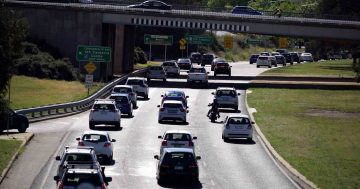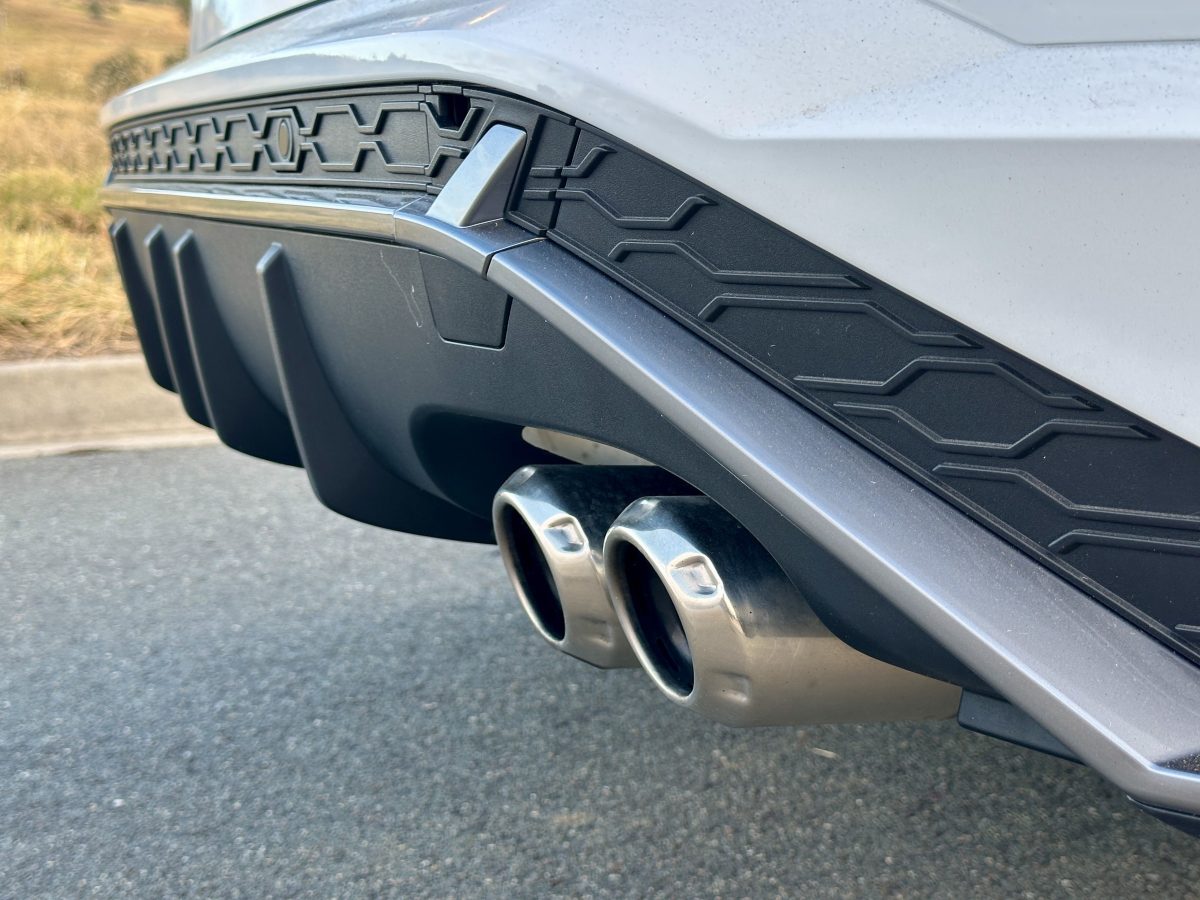
It’s not how much you weigh, it’s what comes out of here (or rather, doesn’t) that makes the biggest difference from 1 July. Photo: James Coleman.
From 1 July, the ACT registration system changes from a registration fee based on weight to a fee based on emissions.
Low and zero emissions vehicles will score cheaper registration fees while higher emissions vehicles will be penalised and pay more for their registration.
“Changing to an emissions-based registration system is part of Canberra’s plan to reach net zero emissions by 2045 and to make fuel efficient vehicles more affordable for Canberrans,” the government says.
The government adds that 95 per cent of all light vehicles on the road (including petrol and diesel) are expected to cost the same or cheaper relative to the weight-based system.
Over four years, the combined effect of changes to registration fees, stamp duty and concession is said to save motorists $6.6 million.
But we decided to do some research of our own.
But first, what exactly is changing?
The total cost of vehicle registration is made up of many components, but the actual registration fee is the biggest.
Motor Accident Injuries (MAI) insurance takes up the next largest chunk, followed by a road rescue fee, road safety contribution, motor accident levy, and lifetime care and support levy.
Up to now, the justification for basing the registration component on weight has been easy – the heavier you are, the more stress you’re putting on the road network, the more you can pay to fix it.
New EVs already receive two-years free registration in the ACT but, beyond that, if you’re driving an EV with more than a tonne alone of batteries on board, you’re effectively being penalised.
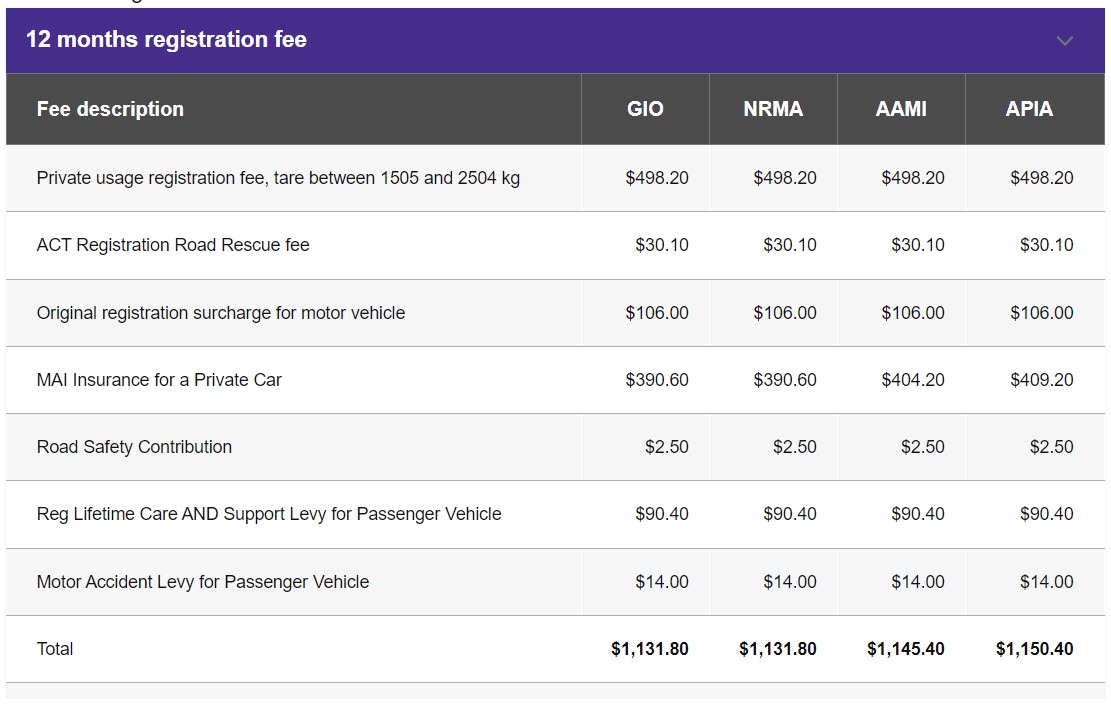
A breakdown of the costs involved in 12 months registration for a Toyota Camry Hybrid. Photo: Screenshot.
The new system reverses this.
Every internal-combustion vehicle on sale in Australia has been tested by the Federal Government’s Green Vehicle Guide to see – on average – how many litres of fuel it consumes over 100 km (l/100 km) and how many grams of carbon dioxide (CO2) it emits per kilometre (g/km).
You’ll see both these figures on the mandatory Fuel Consumption Label on your new car’s windscreen.
The ACT Government will use these CO2 figures to divide vehicles into five categories: AAA for pure battery-electric cars like the Hyundai Kona, A for hybrids like the Toyota Camry, B for small-engined cars like the Toyota Yaris, C for bigger passenger cars like the Mazda 3, with D reserved for big diesel-powered SUVs and utes like the Ford Ranger.
Now to the cost …
The ACT Government estimates you’ll be paying $298 less to register your Hyundai Kona EV per year, $50 less to register your Toyota Camry hybrid, and no change to cars like the Toyota Yaris, Mazda 3 or Ford Ranger (although it’s unclear which engine this Ranger has).
It has also released an online calculator where you can find out what your car will cost to register from 1 July.
We did some playing around to find out what several cars across the spectrum of size and emissions cost to register now, compared to what they will cost from 1 July.
The Tesla Model Y was our favourite car of 2023 but, weighing just shy of two tonnes, it currently falls under the ‘large’ bracket and the private registration fee is $622.70 for 12 months. This drops to $355 from 1 July.
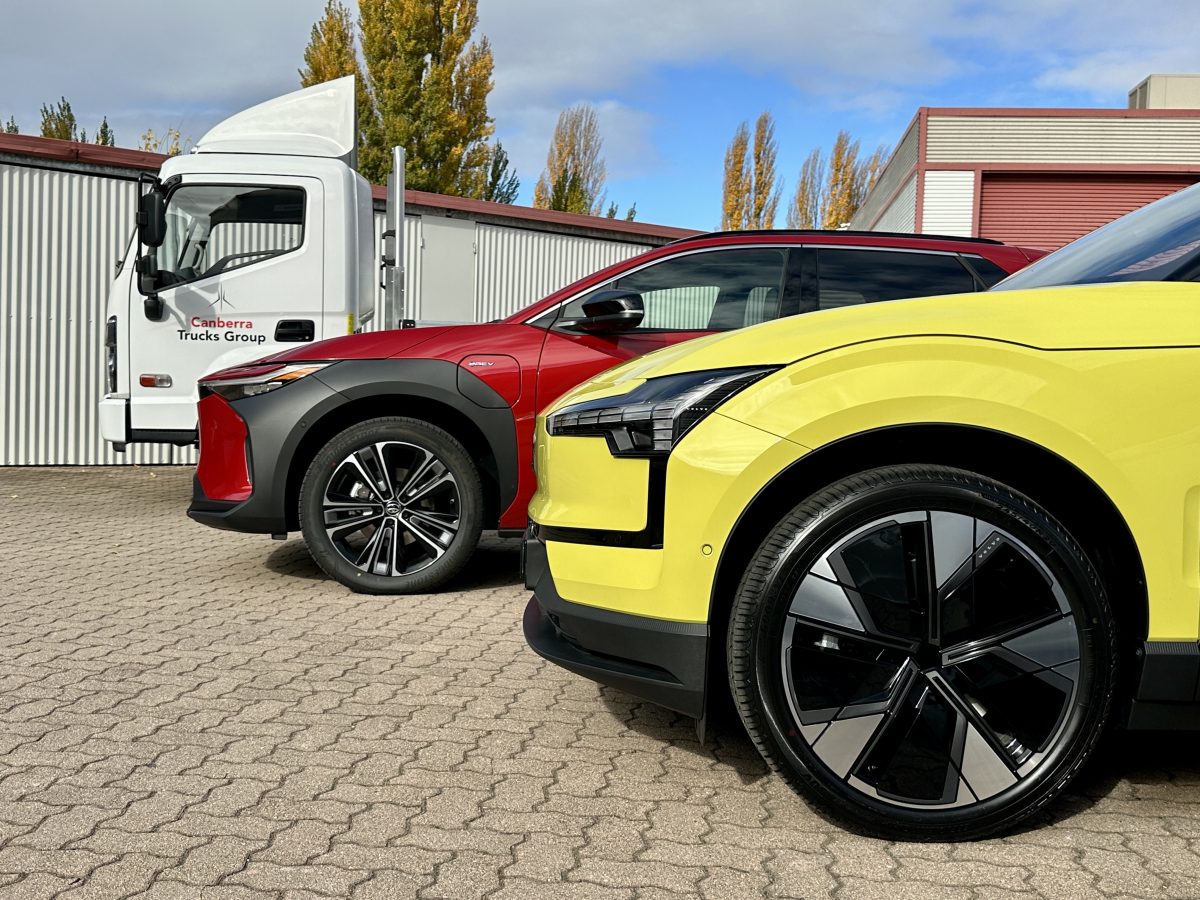
EVs are penalised under the current regime because of their weight. Photo: James Coleman.
It’s the same story for the Tesla Model 3, which is only about 150 kg lighter than the Model Y.
The Toyota RAV4 Hybrid, also in the ‘large’ category as a mid-size SUV, currently costs $498.20. Despite a low combined CO2 figure of 107 g/km (which puts it in category A for emissions), this fee actually goes up to $598.60 from 1 July.
Going up a very big notch is the Dodge RAM 1500 with a hulking 5.7-litre petrol V8, which is classed as a ‘ute/light truck’ in the ‘extra-large’ weight category. It currently costs $949.20.
With a combined CO2 figure of 283 g/km, it’s obviously deep into the top D emissions category, you’re probably preparing for the worst come 1 July, but it ‘only’ goes up by $49 ($998.20).
Returning to the ACT Government’s example of the Ranger, the 2-litre bi-turbo diesel might fall under category C and cost $647.60 from 1 July, but the 3-litre V6 turbo diesel actually echoes the RAM’s figures.
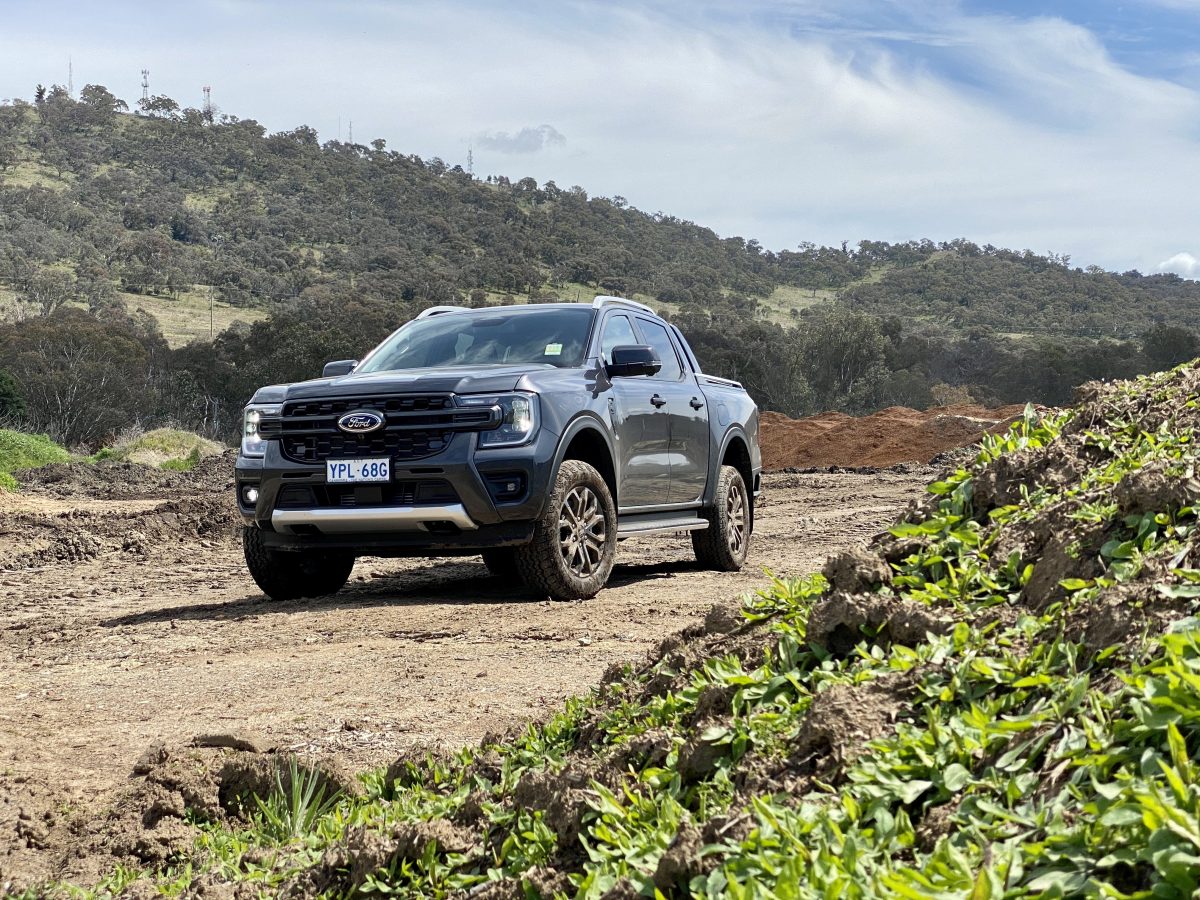
Depending on the Ford Ranger you get, you could pay between $647 and $998 for rego. Photo: James Coleman.
What does this mean?
Canberra’s EV owners obviously welcome the change, but the ACT Council of Social Services (ACTCOSS) has raised concerns about how it will impact low-income households who might be keeping an older car running because they lack the capital to buy an EV.
CEO Dr Devin Bowles told Region that while the change is “a vital step to becoming a net-zero community”, the government’s current incentives mean everyone who can realistically afford an EV already has one.
“Given the cost of low-emissions vehicles, and lack of used low-emissions vehicles, this change will disproportionately advantage those who are already well-off.”
ACTCOSS argues the ACT Government needs to develop incentives for low-income earners, which would also have the “additional financial benefit of reducing fuel costs for this group”.
“Following this boost for higher-income households, ACTCOSS encourages the ACT Government to look at ways to make its overall tax and fee system more progressive,” Mr Bowles said.
Original Article published by James Coleman on Riotact.




